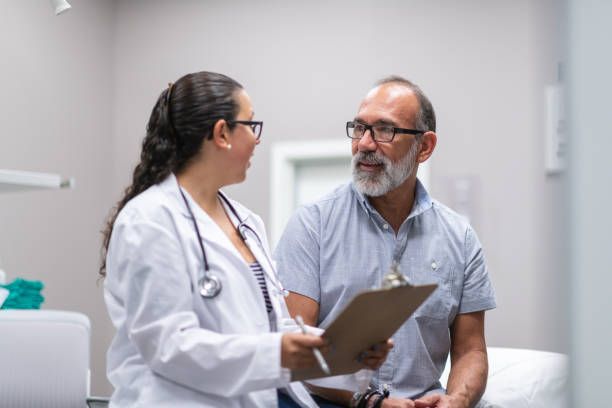- Bone Health
- Immunology
- Hematology
- Respiratory
- Dermatology
- Diabetes
- Gastroenterology
- Neurology
- Oncology
- Ophthalmology
- Rare Disease
- Rheumatology
Patient-Provider Surveys Elucidate Biosimilar Switching Process in Oncology
After a switch to a biosimilar, patients and their oncologists may not always agree on how well the switch was described or whether the patient felt involved.
Researchers who surveyed patients and oncologists about biosimilars and switches to biosimilars from reference products said they found discrepancies between patients’ perceptions and physician perceptions of whether the information provided was adequate.
The study was presented at the 2021 San Antonio Breast Cancer Symposium. Oncologists and patients were asked the same questions following a switch to a trastuzumab biosimilar.
The widest discrepancies in perceptions were the following:
- Oncologists tended more often than patients to report that information about the switch was presented in an easy-to-understand way: 58% vs 42%.
- Oncologists were more likely to conclude that patents had ample opportunity to ask questions: 59% vs 35%.
- Oncologists tended more often to conclude that patients were given adequate information resources about the switch: 33% vs 18%.
- Patients were less likely than oncologists to have the impression that their cancer would be treated as effectively with a biosimilar rather than the reference drug (Herceptin): 43% vs 79%.
- Oncologists agreed less of the time that patients understood the reason for the switch to a biosimilar: 39% vs 43%.
- Oncologists were more likely than patients to conclude that patients were not worried about switching: 41% vs 24%.
- Oncologists tended more often than patients to conclude that switching to a biosimilar was a “minor change” in a patient’s care: 67% vs 37%.
Investigators in this study noted that 5 trastuzumab biosimilars have been approved in the United States and with two 60-item questionnaires, they sought to elucidate patient and oncologist perspectives on switching to biosimilars and the relative levels of understanding between patients and their providers.
“Ours is the first survey comparing the experiences and perspectives of oncologists and patients,” they wrote.
In other findings, 55% of patients reported being given an option to switch from the reference drug, Herceptin, to a biosimilar. Investigators said 41% of patients surveyed said they received no prior notification of a switch. In addition, 44% of patients said they learned more about biosimilars through self-directed study than from their providers, and 41% said they had wanted more time to discuss switching to a biosimilar with their oncologist.
Areas where patients and their oncologists were in close agreement were as follows:
- Patients felt involved in care decisions: 18% vs 18%.
- Patients trusted their oncologists: 63% of patients vs 67% of oncologists.
- Patients trusted their insurance companies: 9% of patients vs 12% of oncologists.
- Patients understood reasons for switching: 43% of patients vs 39% of oncologists.
- Patients emotionally adjusted to the switch: 41% of patients vs 42% of oncologists.
- Patients were not worried about treatment success: 29% of patients vs 33% of oncologists.
The surveys included 33 oncologists and 143 patients. The median patient age was 50 years and for oncologists, 46 years. Patients were predominantly White (91%), but oncologists were not (39%). Investigators said 56% of patients had a bachelor’s degree and 56% had metastatic breast cancer.
Reference
Papautsky EL, Carlson M, Lustberg M. The patient-centered paradox: A US-based survey of oncologist- and patient-reported experiences with trastuzumab biosimilars. Presented at: SABCS 2021; December 7-10, 2021. Poster P2-13-13.
Newsletter
Where clinical, regulatory, and economic perspectives converge—sign up for Center for Biosimilars® emails to get expert insights on emerging treatment paradigms, biosimilar policy, and real-world outcomes that shape patient care.

